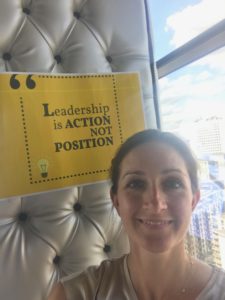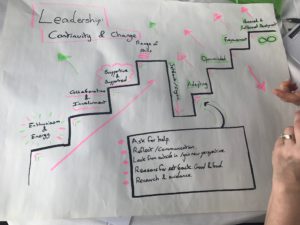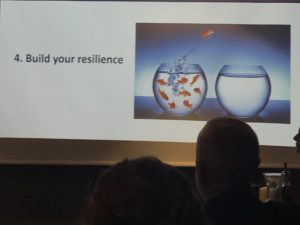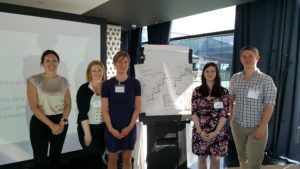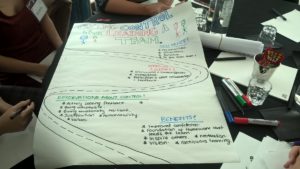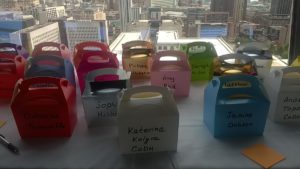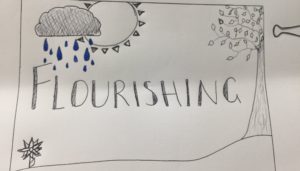Earlier this year I decided to apply to the Council of Deans Student Leadership Programme, excited by the potential opportunity to learn from leaders in nursing and network with my new peers. I have always had firm views about nursing care and ideas about how it needed to develop, but never felt like I was in a position which would allow me to develop and share these opinions. After a considered application, I was excited and pleased to get accepted on to the course. On the 5 June I got on the train from Nottingham to Birmingham, looking forward to the next two days. The Student Leadership Programme was held on the 25th floor of the Circle in Birmingham, which is next to the Mailbox and from the moment I walked in I knew I was part of an amazing opportunity.
On arrival, we were given a chance to network with each other and talk. It was enlightening and encouraging to learn how far people had travelled and hear their hopes for being part of the course. Conversation quickly turned to discussing the different courses we were on. Although all health professionals, it really struck me just how much we would be able to learn from each other; discussing not only the different ways trusts worked, but how different parts of the UK are different in terms of funding and focus. The first day went very quickly, with time spent in groups. The group I was in discussed leading a team, different types of leadership, and the different situations we could potentially find ourselves in after qualifying. It was motivational to be talking with likeminded people who could potentially already see ourselves making decisions about being in charge of a team. People who are already beginning to pick up on the difficult choices that could arise in the workplace, and who were also considering the best way to manage these decisions.
Before a wonderful dinner, we were spoke to by Ismalia De Sousa, Clinical Nurse Specialist from a hyper acute stroke unit, who talked to us about ‘sitting at the table’. I have reflected on this message and its importance often since. As a student, it is easy to feel like we’re not ‘at the table yet’, more waiting in the queue outside. This talk was important for me, it made me realise this is our time, as students, to make positive changes and to move forward with a fresh attitude towards patient care and doing our best for people.
The next day we checked out of the hotel early and headed back to the Circle. We started with Nigel Harrison, Dean at the University of Central Lancashire, who talked to us about his own journey into nursing. This was a wonderfully personal account and it was a real privilege to be able to listen to someone, with such an extensive career, still talk so enthusiastically about nursing. It was really heartening to listen to him with so much passion and drive. Adele Nightingale also spoke to us about resilience and I felt it was invaluable to get advice on this now. I feel this topic should be discussed with all students, as it could help us remember why we come into healthcare and that our focus, whatever our reason for this choice, should be for the good of our patients. Bouncing back is important, it is our ability to be resilient in a situation which reminds us it is not about us, it is about the patient we are looking after.
I feel the leadership programme, so far, is giving me the confidence to want to ‘sit at the table’; To bring and share my ideas and be part of an ever-changing healthcare system. I have learnt skills that I will use for the rest of my career, but more importantly, skills that I will be able to share with others to help their development. I feel so grateful for the opportunity to consider and work towards the type of nurse and leader I want to be and look forward to whatever the future brings.
Pippa Chillman

